 |
Disagreeable givers often make the best critics: their intent is to elevate the work, not feed their own egos. They don’t criticize because they’re insecure; they challenge because they care. They dish out tough love.
|
87 |
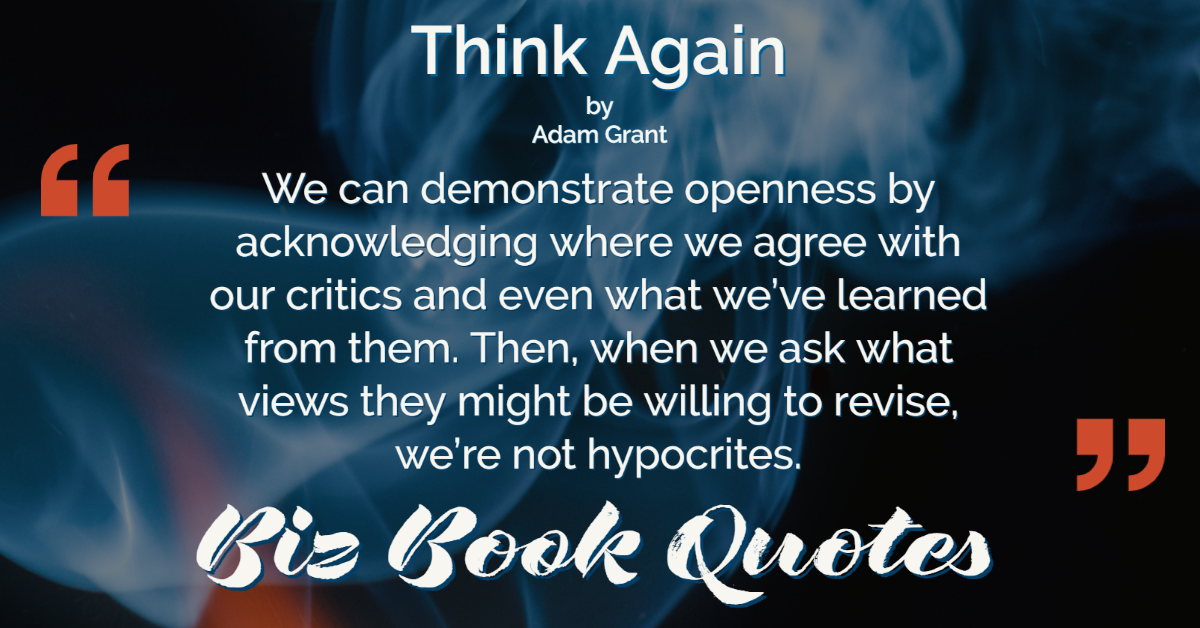 |
We can demonstrate openness by acknowledging where we agree with our critics and even what we’ve learned from them. Then, when we ask what views they might be willing to revise, we’re not hypocrites.
|
107 |
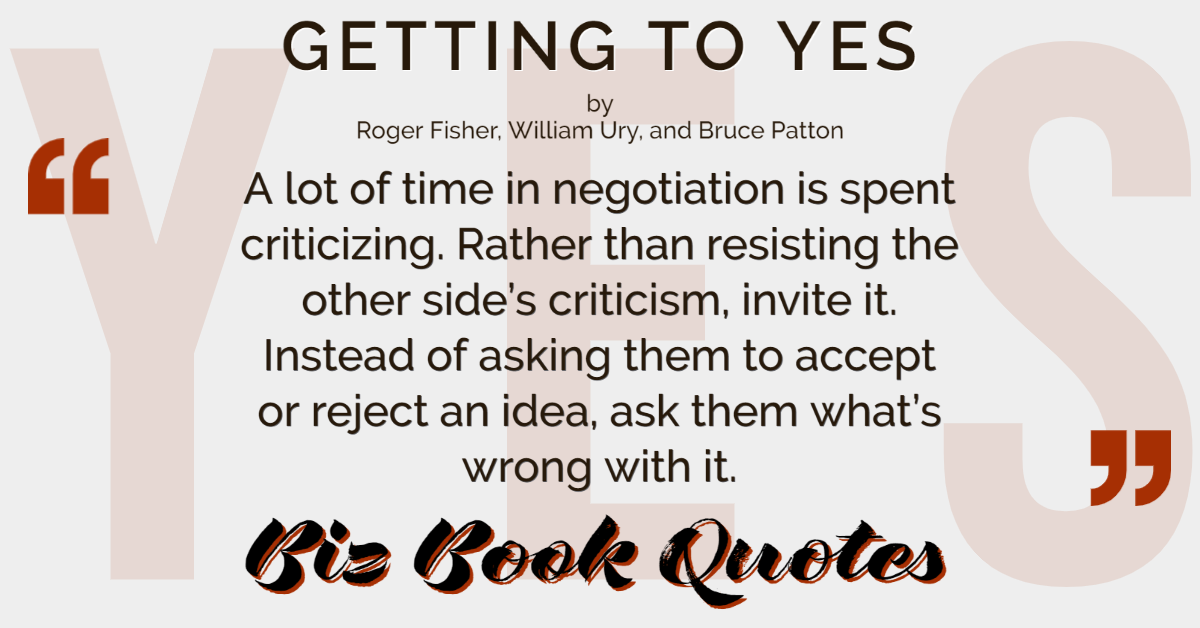 |
A lot of time in negotiation is spent criticizing. Rather than resisting the other side’s criticism, invite it. Instead of asking them to accept or reject an idea, ask them what’s wrong with it.
|
112 |
 |
Another way to channel criticism in a constructive direction is to turn the situation around and ask for their advice. Ask them what they would do if they were in your position.
|
113 |
 |
Pick the wrong person [for CEO], and the penalties include a skidding stock price, vanishing customers, tattered brand reputations, and intense employee criticism.
|
200 |
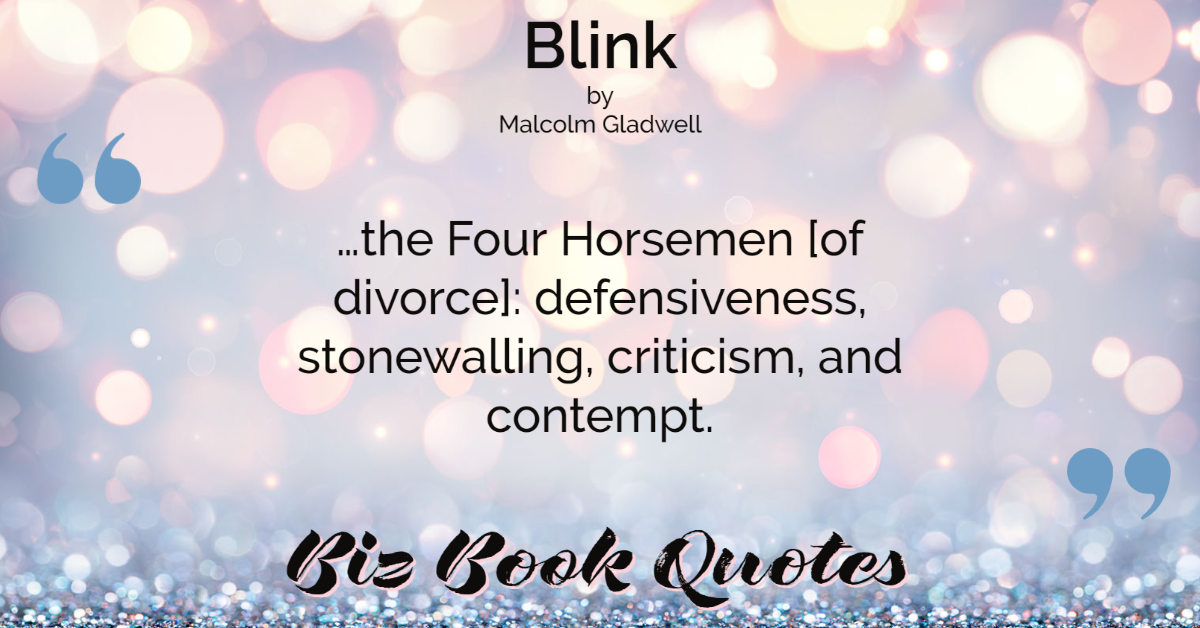 |
…the Four Horsemen [of divorce]: defensiveness, stonewalling, criticism, and contempt.
|
32 |
 |
If you are in middle management, don’t be a wimp. Don’t sit on the sidelines waiting for the senior people to make a decision so that later on you can criticize the over a beer… Your time for participating is now.
|
115 |
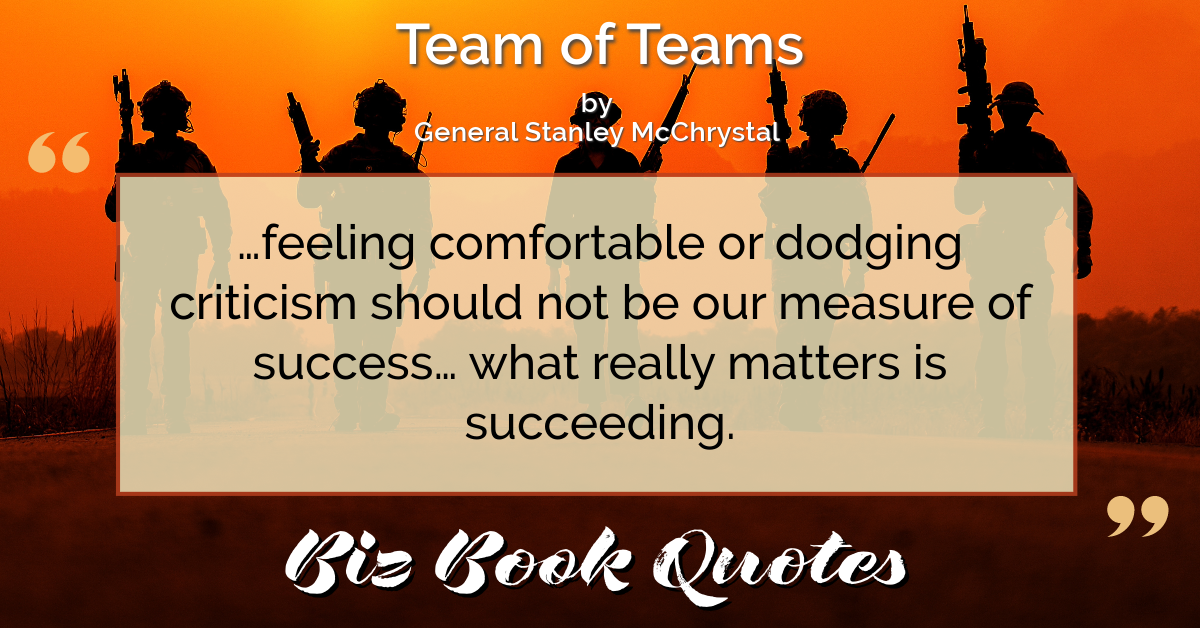 |
…feeling comfortable or dodging criticism should not be our measure of success… what really matters is succeeding.
|
008 |
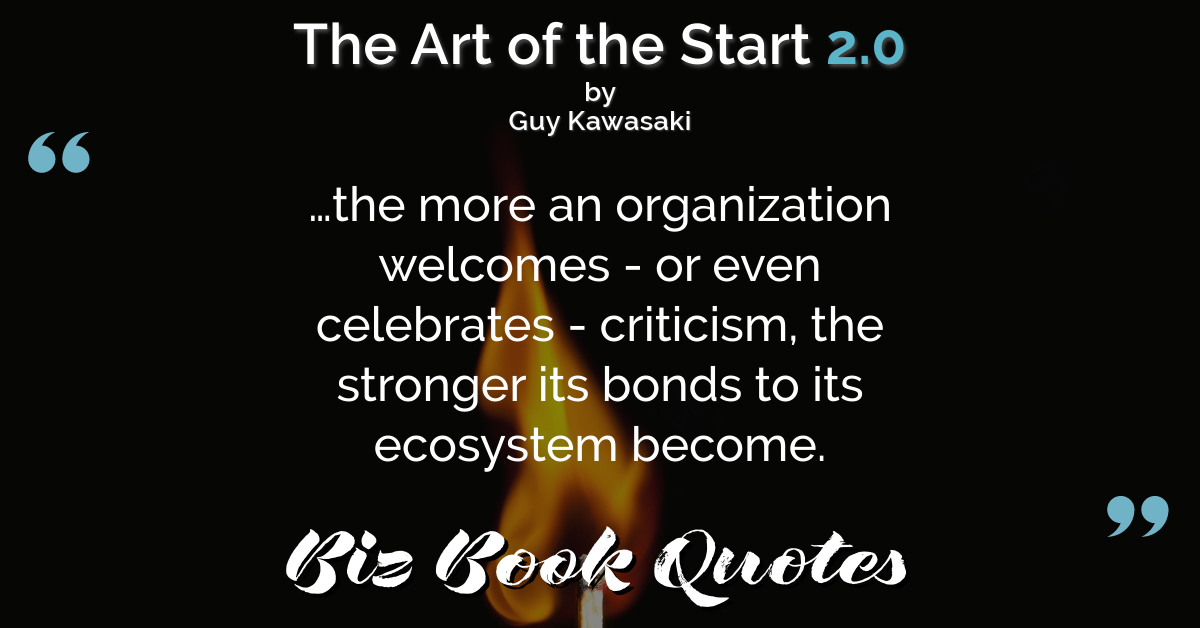 |
…the more an organization welcomes – or even celebrates – criticism, the stronger its bonds to its ecosystem become.
|
279 |
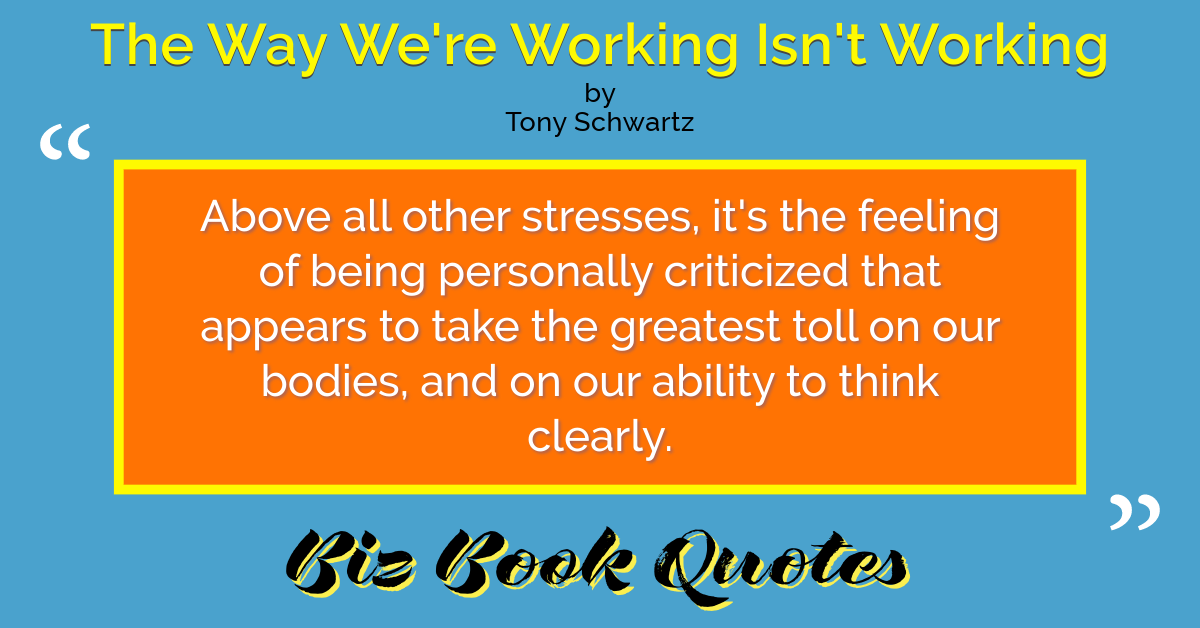 |
Above all other stresses, it’s the feeling of being personally criticized that appears to take the greatest toll on our bodies, and on our ability to think clearly.
|
138 |